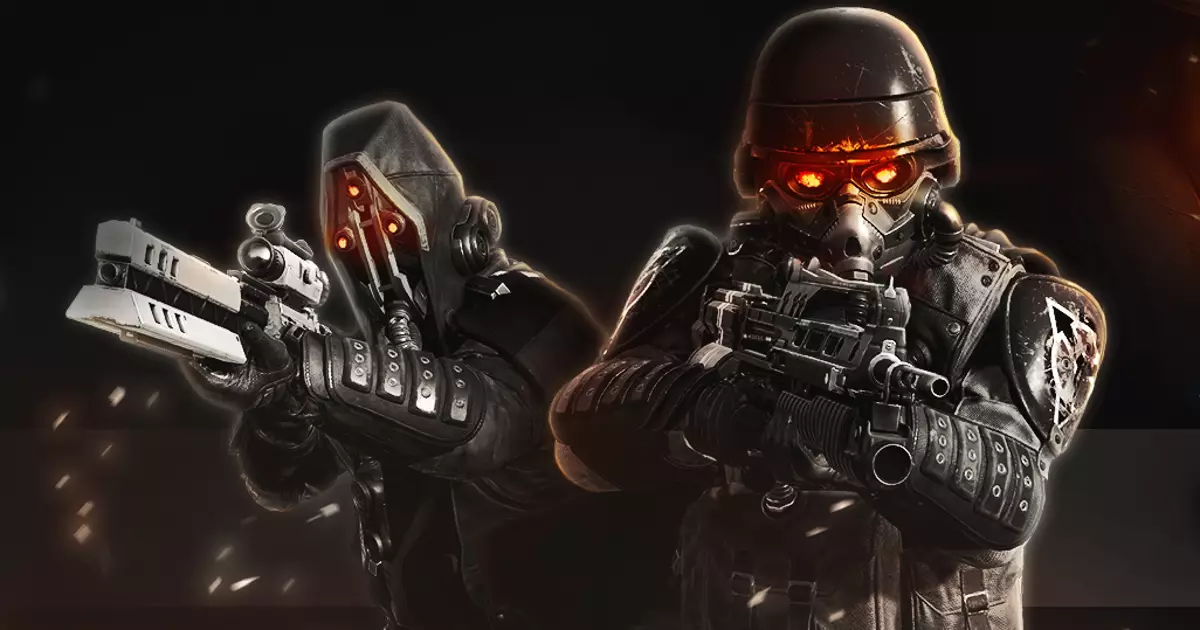In an unexpected turn of events in the gaming world, Arrowhead Games has revealed an unusual collaboration that aligns its satire-driven title, Helldivers 2, with the renowned but long-standing franchise, Killzone. This alliance has sparked mixed reactions from avid gamers, igniting debates surrounding commercialization and creative integrity in modern gaming. As two starkly different franchises come together, it’s essential to unpack the implications of this crossover and what it means for the future of both series.
Arrowhead Games prides itself on a satirical take on militarism in gaming, with Helldivers serving as a critique of authoritarianism and fervent nationalism. In tandem, Killzone represents a traditional military sci-fi narrative rife with conventional tropes of warfare. By merging these two worlds, Arrowhead appears to extend its satire to encompass the essence of corporate partnerships, especially those that potentially dilute the original intent of both franchises. This juxtaposition raises an intriguing question: Is this crossover a tongue-in-cheek commentary on the absurdities of war-themed games, or merely a corporate ploy?
While fans of Killzone may feel a sense of nostalgia, the choice of this franchise is noteworthy. After Sony and Guerrilla Games predominately positioned Killzone as a competitor to heavyweights like Halo, its decline in prominence allowed for initiatives like this crossover to surface. Arrowhead’s embrace of Killzone, previously known for its tactical grit, underlines the industry’s tendency to recycle established brands for financial gain—often at the cost of artistic purity.
The gaming community has responded with a blend of excitement and trepidation. While some players welcome the opportunity to engage with Killzone’s weaponry and armor, others express discontent regarding the idea of monetizing primary gameplay elements. The suggestion that additional exclusive content is tied to success in the in-game Galactic War further complicates matters. Fans are left grappling with the notion that core gameplay experiences are becoming increasingly transactional.
Complaints regarding unregulated pricing schemes for cosmetic and gameplay elements resonate with a growing segment of the player base. The hesitation over the sales of primary weapons as downloadable content (DLC) stems from a significant shift towards microtransactions in many contemporary gaming titles, which prioritize profit over player experience. This trend merits further discussion about the potential risks it poses to both games’ integrity and the trust in game developers.
Exploring the Implications of this Collaboration
As Helldivers 2 introduces Killzone’s universe into its comedic mélange, this crossover raises questions about the future direction of both franchises. With Arrowhead expressing interest in numerous potential partnerships, there is a glaring risk that the unique identity of Helldivers could erode. Given its foundations in satire, the balanced integration of another franchise’s aesthetic demands prudence to avoid muddied messaging that clashes with its established thematic direction.
Moreover, with the revelation that this crossover includes a “new tier of special Premium content,” the financial motive behind such collaborations becomes clear. This shift from engaging interactive content to monetizing exclusive aspects presents a broader concern: the culture of exclusivity in gaming and its potential disconnect from the core gaming community.
While the partnership between Arrowhead’s Helldivers 2 and the legacy of Killzone presents opportunities for innovation and nostalgia, it also encapsulates the ongoing tension between artistic vision and commercial viability. The jury remains out on whether this crossover will ultimately enhance player engagement or merely serve to dilute the essence of both titles.
As gaming continues to evolve, these collaborations could redefine how we interact with beloved franchises. Whether they invite innovation or merely represent a calculated cash grab remains to be seen, but one thing is certain—the conversation around creativity and commercial interests in gaming has never been more relevant. In the end, the challenge for developers like Arrowhead is to ensure that their experiments with crossovers still resonate with the ideals they initially set out to critique. Only time will reveal how this bold venture influences the landscape of gaming and its communities.


Leave a Reply